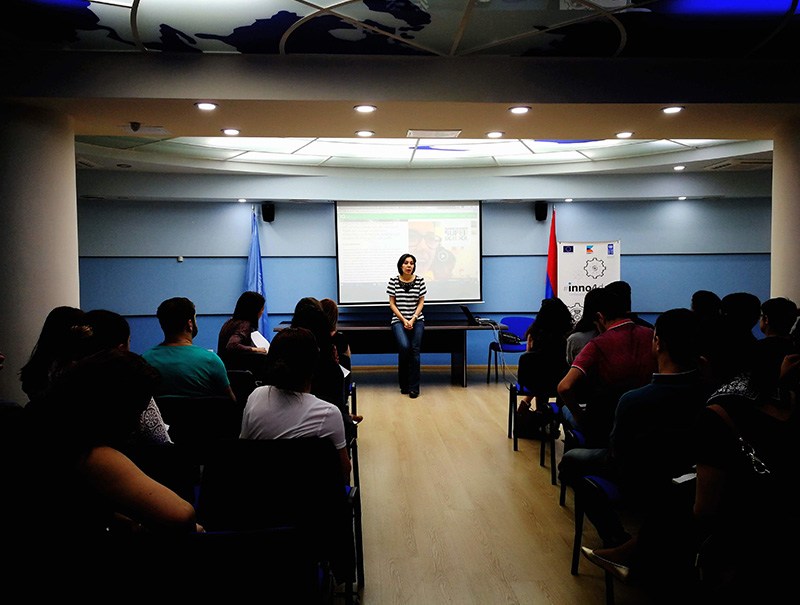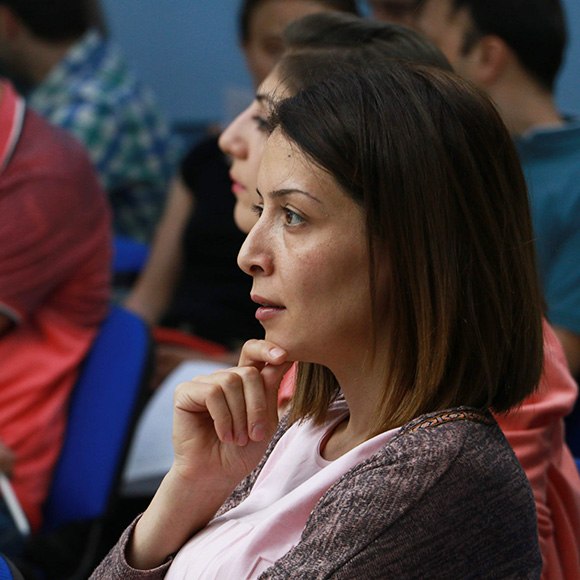Innovation Challenge on Education
Making our education systems fit for the 21st century is not a problem that Armenia faces alone. All around the world, governments are looking critically at the way they approach education.
The future of Armenia is dependent on whether we can shift from outdated learning behaviors, and reach out to a whole new era of technologies, resources and opportunities.
Kolba Lab is looking for activists and change-makers from across the social spectrum who have ideas for shaking up educational services, to create an active, 21st century-ready population.
Is this you? Then join us! 19th June, 2017 is the deadline for the submission of your ideas!
Despite being dubbed ‘the cleverest nation on Earth’, when citizens of Armenia are asked what their most pressing concerns are, they consistently point to better education. Have a discussion about the future of Armenia with anyone, and sooner or later the answer will come back round to education.
This is because education is at the centre of everything. Without a functioning, dynamic education system you cannot build a labour force that is able to compete on the global stage. Whereas in the past, the people of Armenia were known for being highly educated and highly skilled, today there is a huge lack in high-end professionals.
This is a problem; one that Armenia’s social, economic, political and environmental future depends on solving.
Making our education systems fit for the 21st century is not a problem that Armenia faces alone, however. All around the world, governments are looking critically at the way they approach education. Whether the answer is through technology – teaching coding to children from a young age or utilising smart phones in schools and the workplace as learning aides – or through changes in content or format – such as removing grading and all but eliminating homework and exams (all in Finland) – people are beginning to realise that education needs a shake-up.
Should we perceive our education as service for which we’re paying, or a burden which we must undertake (be it a university tuition fee or the time spent at any online course)? What if being a demanding client seeking high-quality services became the new norm? How can we build such a positive and service-oriented culture of learning? Transforming what education means and how it is delivered is not the sole responsibility of government. As citizens – and users of public services – our voice and ideas are equally important.
So, in Kolba Lab tradition, supported by the European Union, we are turning the floor over to you! We want to hear from you what innovative suggestions or initiatives you have to improve education services in Armenia. In partnership with Girls in Tech Armenia, BizNest and IAB Internaional Business Academy, Kolba Lab will hold a pitching event for finalist ideas in the format of Extreme Build a Business Weekend (developed by Griffin Worx) in July, 2017. We’re looking for your suggestions in all areas, but special attention will be given to innovative ideas focused on at least one of these three things:
- Data – how can we increase communication channels or feedback loops between learners and teachers, as well as increase communication between users, institutions, industry and governments? Can we identify new kinds of data, along with new ways to share that data? Can that data help to predict developments in industry and labour market?
- Process – can education services and processes be more user-friendly, entertaining or gamified? How can practices of learning build ‘active’ rather than ‘passive’ citizens?
- Space – how can physical and intellectual space be better instrumentalised to promote a learning environment among learners of all ages?
What problems is Armenia facing?
Here are six key problems that need solving to get you started, but feel free to go beyond this list!
1. Making education more inclusive and more accessible. If you’re from a rural area, or you suffer from physical or learning disabilities, then you’re much less likely to finish school or go on to university. How can we ensure that the disadvantaged are equally able to access quality education?
2. More education for people in the workplace. In staff training, Armenia comes 109th out of 138 countries worldwide according to the World Economic Forum, with only one out of four employers providing on-the-job-training. How can we help increase opportunities for Armenia’s workforce to continue learning?
3. Armenia has high levels of youth who are neither in employment, nor in education. How can we better engage these youth in education programmes, whether formal or informal?
4. All successful education systems are well connected to the needs of the labour market. Yet Armenia has great room for improvement, scoring 86th out of 138 countries in preparedness for future skills. Let’s make education platforms that are more future-oriented!
5. More vocational and education learning is needed, particularly in higher education. In key growth industries, such as the IT, creative design, digital production or architecture sectors, this is even more notable.
6. Pre-school institutions are extremely important for stimulating children’s learning and creativity from an early age. Despite the government’s aim for 90% enrolment, the actual figure is still significantly lower, at around 50%. How can we increase access to early stage education?
Need a muse?
Try the fast idea generator. It is full of interesting ways to twist current approaches and generate creative ideas.
Some other cool examples of innovation in education include:
• Utilising Artificial Intelligence, or AI, as a way to predict the likelihood of individuals dropping out from school, like the service offered by BrightBytes.
• Together4Armenia, an initiative designed to encourage the transfer of skills from the diaspora to local Armenian communities.
• Empowering Indian mothers to break the cycle of illiteracy, the simple, low-cost mobile platform, Dost Education, uses a voice-based curriculum via phone to keep mothers more informed and active participants in their children’s education.
• An online streaming service for educational institutions, Kanopy, allows access to a database of over 26,000 curated documentaries and films to enhance learning outcomes.

